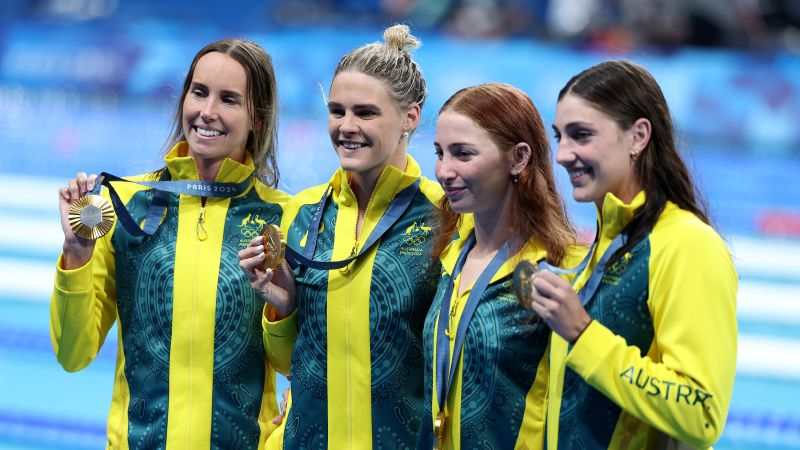Olympics commentator Bob Ballard was dropped from Eurosport on Monday after making sexist comments about the Australian women’s swim team following their gold medal win in the 4×100 meter freestyle relay. Ballard joked about the women taking too long to exit the Paris Aquatic Centre, insinuating that they were delaying to do their makeup. His co-host, former Olympian Lizzie Simmonds, immediately called out his comments as outrageous, pointing out that some men do the same thing. Eurosport, which distributes the Olympic broadcast in Europe, confirmed Ballard had been removed from their commentary roster in response to his remarks.
Bob Ballard, a veteran sportscaster who has covered several Olympic games and works for both Eurosport and BBC Local Radio, issued an apology on social media for his offensive comments. He stated that it was never his intention to upset or belittle anyone and acknowledged that his remarks had caused offense. Ballard emphasized that he is a huge supporter of women’s sports and expressed his regret at being dropped from the Eurosport team. Despite his apology, Eurosport stood by their decision to remove him from their commentary roster in response to his inappropriate comments.
The incident involving Bob Ballard’s sexist remarks highlights the ongoing issue of gender discrimination and inequality in the sports broadcasting industry, with women often facing unfair treatment and judgment based on their gender. The immediate backlash and consequences Ballard faced for his comments indicate a shifting attitude towards tolerance for sexism in the media, particularly in the context of major sporting events like the Olympics. By holding individuals accountable for their remarks and actions, there is potential for positive change towards more inclusive and respectful coverage of women athletes in the future.
The swift response from Eurosport to remove Bob Ballard from their commentary team demonstrates a commitment to promoting gender equality and respect in their broadcasting. By taking a stand against sexism and discriminatory behavior, Eurosport sends a strong message that such conduct will not be tolerated within their organization. This action sets a precedent for other media outlets and sports broadcasters to enforce strict standards of professionalism and respect for all athletes, regardless of gender or other characteristics. It also shows the importance of holding individuals accountable for their words and actions, even those with longstanding careers in the industry.
In his apology statement, Bob Ballard expressed regret for his comments and acknowledged the offense they caused, highlighting the importance of recognizing and addressing harmful language and stereotypes when discussing women athletes. While his apology may have been a step in the right direction, the incident serves as a reminder of the pervasive nature of sexism in sports commentary and the need for continued efforts towards gender equality and respect in the industry. Moving forward, it is essential for broadcasters and commentators to be mindful of their language and behavior, and to actively work towards creating a more inclusive and supportive environment for all athletes, regardless of gender.
Overall, the controversy surrounding Bob Ballard’s sexist comments towards the Australian women’s swim team at the Olympics sheds light on the broader issue of gender discrimination in sports broadcasting and the importance of promoting equality and respect for all athletes. The response from Eurosport to remove Ballard from their commentary team underscores a growing intolerance for sexist and discriminatory behavior in the media, signaling a shift towards more inclusive and respectful coverage of women athletes. While Ballard’s apology may have been a step towards accountability, the incident serves as a reminder of the ongoing need for greater awareness and sensitivity in sports commentary towards harmful stereotypes and biases.


